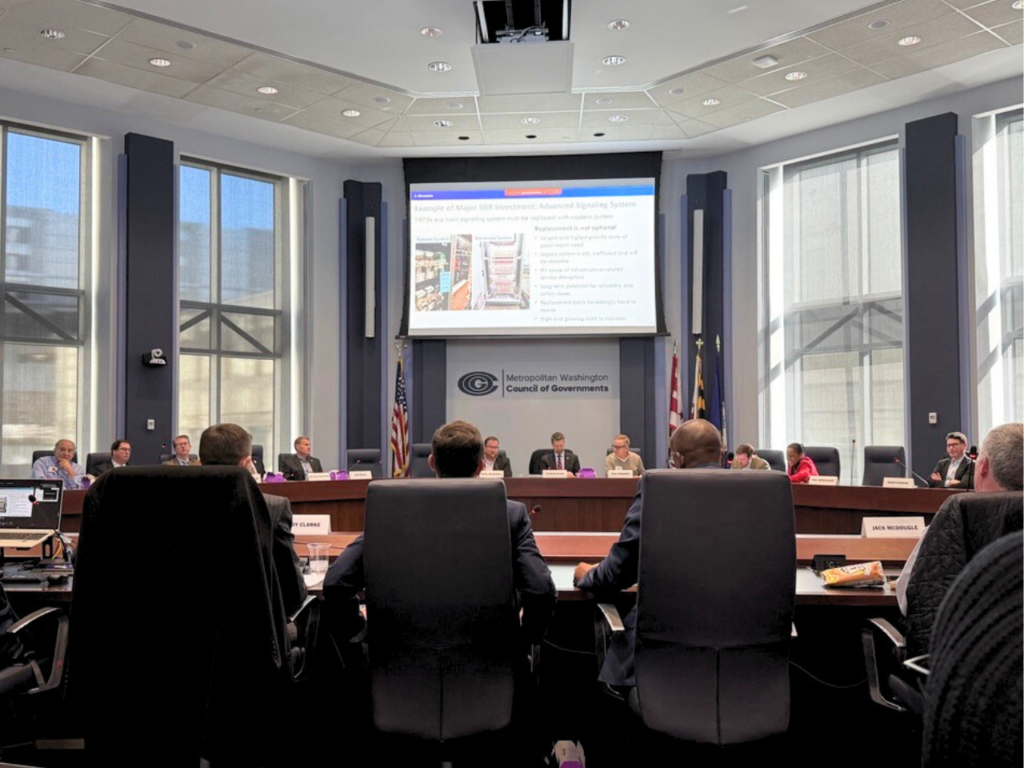
Today, the DMVMoves Task Force considered transit funding scenarios that have been elevated to the group based on months of meetings and discussions from DMVMoves Government and Community Partners Advisory Groups of area government, business, and civic leaders and transit providers. Four scenarios were presented to the full body ranging from sustaining current service levels and maintenance programs to providing maximized service and modernized trains, buses, and infrastructure to revolutionize transit for the region for generations to come. All options are fully being vetted.
“Nothing before us is easy,” said DMVMoves Taskforce Co-Chair and Council of Governments Chair Charles Allen. “We have the opportunity to chart a path forward for our region by locking in a secure future for public transportation and all of the benefits that come with great bus and rail service. But that future doesn’t happen without trade-offs, and this debate will challenge everyone around the table to think about the best path forward.”
“I appreciate the thoughtful engagement we’ve had on every challenge and opportunity that’s been raised,” said DMVMoves Taskforce Co-Chair and WMATA Board of Directors Vice Chair Paul C. Smedberg. “Each discussion brings us closer to making meaningful recommendations that will ensure we have an executable regional transit plan for the DMV.”
Leaders provided thoughtful comments in response to the presented scenarios that showcased the complexity and layers that have prevented the region from adopting a unified transit vision and sustainable funding model throughout the years. The majority of members voiced strong support for scenarios that will increase service beyond current levels. Themes ranged from WMATA needs versus local needs; building options for future consideration; codifying benefits versus value; maximizing growth around Metro stations versus investment in Bus Rapid Transit systems; and the best model for new funding—either a uniform, regional revenue source or transit funding needs allocated to each jurisdiction. While no definitive recommendation was decided, the group voiced appreciation for the thoughtful conversations and vowed to continue discussions in the coming weeks as jurisdictional budget planning begins.
The Task Force is made up of 23 elected and appointed officials from the District of Columbia, Maryland, Virginia, and the federal government. The group held its first meeting in June and is working toward developing policy recommendations and a final plan by May 2025.
For meeting materials as well as additional information on the initiative, visit the event page.


